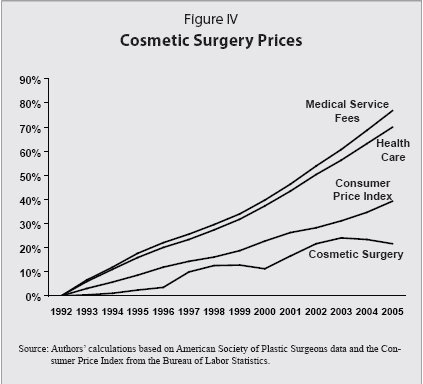This is a long-running series on this blog, and the most recent example comes from John Stossel.
[T]he IRS plans to require paid preparers to register with the agency. Subsequently -- the timeline is not yet firm -- they will be required to pass competency tests and receive continuing professional education"¦
In a report issued Monday, the agency also raised concerns about the quality of tax-preparation software"¦
As is usual in such cases, the IRS uses some ridiculously mundane task (in this case, hair cutting) as an example of something which is licensed but its super-critical target industry is not. This is typically supposed to be read as a justification of the extension of licensing to the new industry, though I always read it as a comment on how over-licensed we already are.
In field tests, the IRS noted Monday, tax-return preparers often gave bad advice"¦
Of course, in numerous field tests, the IRS itself often gives bad advice as well. From MSN Money a while back:
Two decades ago, Ralph Nader's Tax Reform Research Group prepared 22 identical tax reports based on the fictional economic plight of a married couple with one child. Identical copies were submitted to 22 different IRS offices around the country.
Each office came up with an entirely different tax figure. Results varied from a refund of $811.96 recommended in Flushing, N.Y., to a tax-due figure of $52.13 demanded by the IRS office in Portland, Ore....
Physician, heal thyself. Maybe the problem is in the tax code, not the preparers. From the same MSN Money article:
Since 1988, Money magazine has conducted an annual study where 50 tax professionals, including attorneys and certified public accountants, have been asked to complete a tax return for a hypothetical family.
The results have been unnerving. The professional preparers come up with different results each year -- with spreads of as much as $1,000.
So let's see where we are. The IRS can't get the answers right. Neither can the professionals. That may explain why there have been U.S. Supreme Court tax cases where as many as four of the justices got the answer "wrong."
Maybe the justification has nothing to do with the quality of tax preparation. Let's see who was happy about the IRS announcement:
H&R Block's enthusiastic response to the IRS's regulation plans suggests that the same thing will happen once the IRS licenses tax preparers:
Under the new rules, H&R Block "won't be competing against people who aren't regulated and don't have the same standards as we do," said Kathryn Fulton, senior vice president for government relations.
I will end, as I always do on this topic, with a quote from Milton Friedman:
The justification offered is always the same: to protect the consumer. However, the reason is demonstrated by observing who lobbies at the state legislature for the imposition or strengthening of licensure. The lobbyists are invariably representatives of the occupation in question rather than of the customers. True enough, plumbers presumably know better than anyone else what their customers need to be protected against. However, it is hard to regard altruistic concern for their customers as the primary motive behind their determined efforts to get legal power to decide who may be a plumber.

